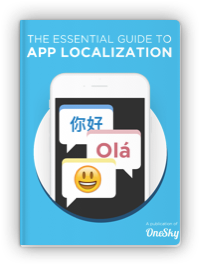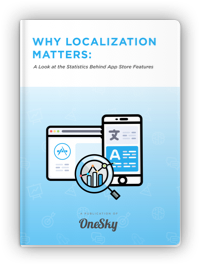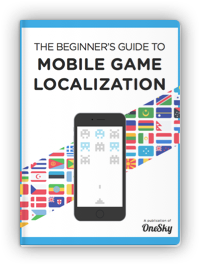Navigating Game Localization Problems for Global Success
The global gaming market generated revenues of $187.7 billion last year and is expected to reach a valuation of $282.30 billion in 2024. It’s clear that developers and game makers are poised for one of the greatest growth opportunities yet, so long as they aren’t hampered by game localization issues that limit their reach and engagement.
The failsafe solution? Proactive localization strategies that anticipate the limitations and solve them BEFORE they occur.
In this article, we’ll be going over what game localization is, the challenges to anticipate with game localization and strategies for app, game, SaaS, and software experts to consider as they continue on in the design and launch process.
Understanding Game Localization
Game localization is a series of steps you take to prepare your game for adoption and appreciation on a global scale. It covers both marketing and developmental tasks, going above and beyond translation to create a product that’s culturally acceptable and aligned.
Translation, in contrast, covers the direct translation of content between languages and dialects. An example of this would be in-game content being translated to Japanese from English, or from an initial language to any other target language.
Common Challenges in Game Localization
Game translation and localization are needed for a successful expansion. However, each task comes with its own set of unique challenges. Anticipating these ahead of time allows you to streamline your rollout and increase your possibility of profiting.
Here are some of the most prominent “trouble spots” to watch for as you launch your game.
Cultural nuances and sensitivity
Not to be overlooked, cultural nuances and sensitivity play a tremendous role in the user experience — especially within the video game industry. While you can make your game appeal to an international audience from the start, you miss the opportunity to personalize each gaming experience by region. This results in two possibilities:
- You create a game that may not reach its full potential, as you’re trying to universally appeal.
- You don’t create a game that aligns with your vision, expectations or desires.
Either case can be avoided by creating a tailored, localized game for gamers that incorporates cultural references, user-optimized gameplay, and accurate translations done by native speakers (and overseen by a talented localization team).
Text expansion and character encoding
Tech issues can be problematic at every point in the development and game localization process. Compacted visuals from too-long literal translation text can ruin the user experience, especially in mobile games that already have less space to work with on-screen.
Planning ahead and inserting space for translated text (especially more verbose text, such as Russian and German) can help you minimize disruptions later in the dev steps. You can also plan ahead as you work on character encoding, leaving room for right-to-left and left-to-right reading preferences (like we see with Chinese).
Voice-over and character dialogue challenges
The translation process is critical to the quality of your localization projects. However, unless your translation is overseen and supported by quality game localization services, it runs the risk of minimizing the cultural differences and nuances that elevate a game from satisfactory to chart-topping.
As you enter the planning phase, build in pricing and consideration for native speakers, machine translation tools and other aids (such as a localization specialist) to aid you as you go through the translation process. These simple preparatory steps will help you to avoid voice-over and dialogue challenges going forward.
Legal and regulatory considerations
Content shouldn’t just be localized — it often has to be legally reviewed to ensure that it is compliant with local regulatory entities.
To avoid slow-downs, have legal reviewers scan your source text and its subsequent localized version. You can also seek legal support as you go through the dev and coding process, helping you to avoid pitfalls in every area of development: From in-game coding to marketing compliance.
For Mobile App Developers: Specific Localization Hurdles
Mobile app developers often find themselves experiencing two primary hurdles:
- Addressing platform-specific localization needs
- Optimizing user interface for different languages
Acknowledging these needs in the project management and development process is the first step toward success. Then, it’s time to take the work to the next step — working with both localization and translation services from the start enables devs to avoid discrepancies in the language presentation of their content; while also allowing them to dedicate their time to addressing platform-specific localization needs.
Game Publishers and Developers: Strategies for Effective Localization
As mentioned above, there is no replacement for the value that you can gain from collaborating with a true localization expert to publish your content. However, there are additional steps you can take (either concurrently or independently) to make your project a smashing success for your target audience.
These steps include:
- Balancing creativity with cultural appropriateness — Creativity is a subjective art, and keeping this in mind as you develop your work ensures that there won’t be any major controversies later on. Consider immersively researching your target audience and location, and look at competing games’ storylines and content to determine how yours might be perceived. This can allow you to “test the water” without investing too much time in the dev process.
- Ensuring consistency in multi-language versions — Subtitles are an essential “ingredient” in your finished game or app. Ensure that there are no gaps in multi-language versions, either in translated text from the source language or in cultural nuance. (i.e., content may not be presented the same way when translated from Spanish to French or to any other language).
Software and SaaS Companies: Leveraging Localization Technology
There are many localization tech options that can help you make the most out of your dev process. Between advancements in localization software to automation capabilities, it’s never been easier to localize your content.
Our suggestion? Do the research into automation tools, project management steps, and integration options to set you up for success in the dev department. Future you will thank you!
Localization Managers: Best Practices for Project Management
Your localization manager is going to be your “best friend” as you go through the development process, keeping you moving in a people-first, profitable, and culturally sensitive way.
Their job, you ask?
- Setting realistic timelines and budgets — It’s easy to get swept away in a sea of social media and high expectations. Your manager will keep you realistic and down-to-earth, helping you be a savvy spender as you go through the video game localization process.
- Quality control and testing in different languages — From QA specialists in China to translation testing in Arabic and American dialects, your manager has you covered. They have the connections (and the capabilities) to get you through this step quickly.
- Managing a multilingual team — It’s not easy managing a team of game developers and experts during the video game localization process. Your manager is there to be a resource and to delegate to as you bring your project across the finish line.
Future Trends in Game Localization
The future is bright for those who choose to spend the time and resources in the video game localization process prior to launch. The generational shift and social media have brought renewed focus to diversity, equity, and inclusion in gaming — which you can leverage and include thanks to emerging tech in dev AI and machine-learning tools.
Additionally, these advancements can support you in your localization steps, saving you time and money down the line.
Aligning with OneSky for Game Localization Success
Ready to get started? We’re here to help We’ve supported large-scale gaming companies (like BANDAI NAMCO, Epic Games, and Tencent)to launch some of their most viral global titles — and we’re here to help you do the same. Connect with us for FREE today and access our team of 1,000+ translators who work across 50+ languages. Let’s make your next project a success (together!)



 Written by -
Written by - 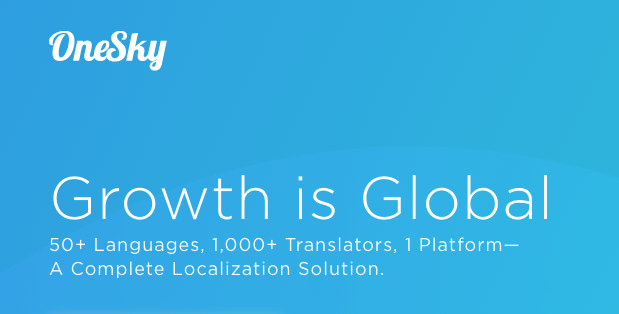

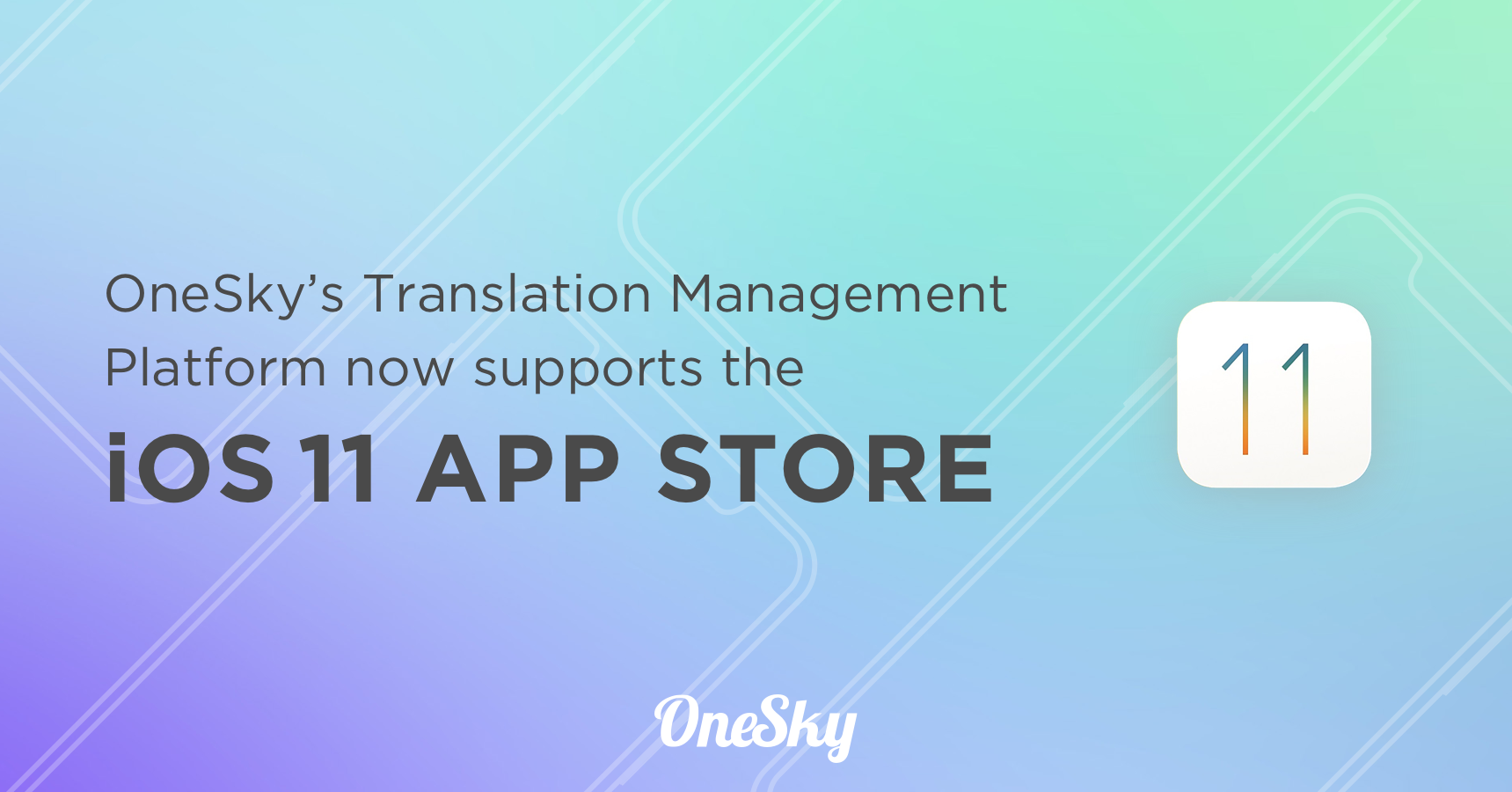
 Written by
Written by 
